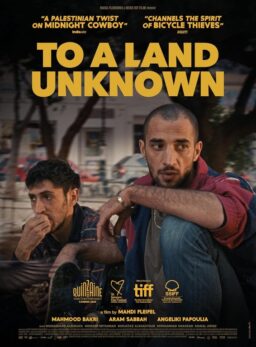HONOLULU — “Twelve Storeys,” a film from Singapore about the residents of government-subsidized high-rise housing, won the Golden Maile Award here last week at the 17th Hawaii International Film Festival. Directed by Eric Khoo, the film involves three families who are affected by the suicide of a building resident. The film raises questions about the tightly controlled Singapore society, in which the government provides security, but demands control.
A special jury prize was voted to Naomi Nishida, the star of the Japanese film “My Secret Cache,” a comedy about a young women whose principal joy in life is counting money.
The documentary award went to “Homesick Eyes,” from Taiwan, about Southeast Asian immigrant workers who make up nearly 3 percent of the population of Taiwan. Directed by Wang Hsiang, the film explores an irony: The workers come to earn money for their families back home; because of long separations, however, they sometimes lose them.
The Vision in Film Award, given only three times previously, went to Ang Lee, the filmmaker who was born in Taiwan and educated in Illinois and New York, and who directed “Sense And Sensibility” and “The Ice Storm.”
The Eastman Kodak Cinematography Award went to John Seale, the Australian virtuoso who photographed “The English Patient” and other films such as “The Mosquito Coast,” “Witness” and “Dead Poets Society.”
For the first time, the festival added an audience award, using weighted ballots cast by viewers. The most popular feature was “Deep River,” by Kei Kamai of Japan, about three generations of Japanese who seek spiritual uplift on pilgrimages to India.
Two Hawaiian films shared the audience award for documentaries: Eddie Kamae’s “Luther Kahikili Makekau: One Kine Hawaiian Man,” about a 98-year- old man born during the last Hawaiian monarchy and the father of no less than 59 children, and Na Maka O Ka’ Aina’s “E Ola Ka’ Olelo Hawai’i,” about a group founded to preserve the original Hawaiian (or Hawai’ian) language.
The festival’s underlying theme is communication among the many cultures of the Pacific Rim; this year a special emphasis seemed to emerge on characters living far from their homelands – sometimes involving cultures in conflict. The Taiwan documentary about immigrant workers was matched by “Homeless,” a Korean documentary about the Chinese who lived for generations in the port of Inchon, but have been dispossessed and discriminated against ever since China invaded Korea during the Korean War.
A different kind of culture shock was explored in “Yellow,” an American film by Chris Chan Lee, about the son of a strict Korean-American grocery owner in Los Angeles. The father enforces his standards so rigidly that he drives customers away. He alienates his son (Michael Daeho Chung), who during a long night with his Gen X Korean- American friends, deals with the consequences when a great deal of money is stolen from the store. The film is fascinating in the way it manages to be both about Korean-American society and about young Gen Xers who could be of any race.











